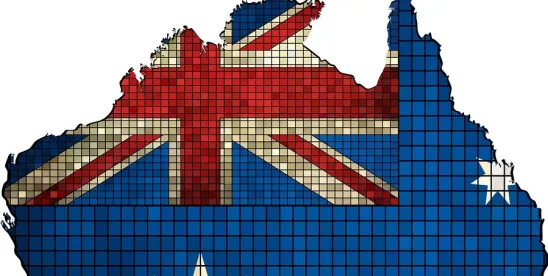Australia Corporate Alert
The McMillan Report (Report) of the statutory review of the Modern Slavery Act 2018 (Cth) (Act) was released on 25 May 2023.
The Report makes a total of 30 recommendations principally directed to enhance and strengthen the Act's effectiveness in addressing modern slavery.
The Government has signalled it will now consider Professor McMillan’s review and will consult across government and with stakeholders in formulating its response to the recommendations.1
OVERVIEW OF THE RECOMMENDATIONS
The Report identifies concerns expressed widely across many of the submissions that there is no hard evidence that the Act has thus far caused meaningful change for people living in conditions of modern slavery.2 It identifies criticisms of the quality of modern slavery statement reporting, including concerns that Australia was not witnessing a ‘race to the top’, but a ‘race to the middle’, a ‘stroll to slightly higher ground’, a demonstration in ‘taking short cuts’ or ‘staying with the pack’.
However, despite the criticisms, the responses to the uppermost question of whether the Act has had a positive impact in the first three years saw 64% of respondents said it has (wholly or somewhat). Many participants in the review pointed to the business cultural change that was underway and a view that the Act raises awareness in the business community of the need for concerted action to address domestic and global slavery challenges.3
While the Report made 30 recommendations in total, the most material to entities operating in Australia are:
| Overview | Recommendation |
| Lowering threshold to AU$50 million (down from AU$100 million currently). | Amending the reporting threshold under the Act to capture entities with a consolidated revenue of at least AU$50 million.4 |
| Consider adding mandatory reporting criteria on incidents of modern slavery. | The Attorney-General's Department considers the desirability of amending the mandatory report criteria in the Act … to add new mandatory report criteria that would require an entity to report on modern slavery incidents or risks identified by the entity during the reporting year.5 |
| Due diligence requirements are introduced. | The Act be amended to provide that a reporting entity must:
This duty should not apply to an entity with a consolidated annual revenue of between AU$50-AU$100 million until two years after the entity has become subject to the reporting requirements of the Act.6 |
| Option of submitting statements every three years with updates in between. | The Act be amended to provide that an entity has the option of submitting every three years a modern slavery statement that addresses all requirements of the Act, and in the intervening two years to submit a report that updates the information in the full statement. The procedure for reporting along these lines should be spelt out in rules made under section 25 of the Act.7 |
| Penalties introduced (civil). | The Act be amended to provide that it is an offence for a reporting entity:
The penalty offence provisions should not apply to an entity with a consolidated annual revenue of between AU$50-AU$100 million until two years after the entity has become subject to the reporting requirements of the Act.8 |
| Investigate public complaints about reporting entities under the Act. | The Attorney-General’s Department examine the practicability of establishing a procedure for the receipt and investigation of complaints from the public regarding entity reporting under the Act.9 |
| Specific declaration that a region, location, industry, supplier or supply chain carries high modern slavery risk. | The Act be amended to provide that:
|
Other themes that arise from the Report's remaining recommendations include further or clearer guidance,11 optional templates for reporting entities,12 amendments to the Act to clarify obligations13 and improvements of the operability and functioning of the Online Register for Modern Slavery Statements.14 The full list of recommendations can be found within the Report.
LOWER THRESHOLD OF CONSOLIDATED REVENUE OF AU$50 MILLION
The Report noted that a lowered threshold would bring Australia into line with developments in due diligence and transparency reporting laws in other countries, and recognise that human rights abuses must be the concern of all business.15 Three key reasons were given for supporting this recommendation for change:
- Australia, having been at the forefront in this field, does not want to be seen as lagging behind other jurisdictions;
- The practical likelihood is that an entity required to report for the first time under a lowered reporting threshold would not report until late 2024/early 2025 at the earliest, which effectively allows some extra time for companies to prepare for reporting; and
- The Report has suggested many options for modifying the mandatory reporting obligation in order to tailor the reporting obligation to the size and activity of an entity.16
The Report specifically suggested that smaller businesses should not be subject to the penalties or due diligence requirements until their third reporting cycle.17
This recommendation is made despite modelling showing:
- The additional number of reporting entities would not necessarily result in a commensurate increase in the coverage of Australian business activity, which is concentrated in a smaller number of large businesses. The global supply chains of Australian businesses are proportionately more likely to be concentrated in a smaller number of large firms than spread evenly amongst all Australian businesses; and
- A lower reporting threshold might not capture a different style of business or supply chain activity than is currently captured by the Act. The profile of Australian business activity is largely consistent at turnover bands of AU$50-AU$60 million, AU$70-AU$80 million and >AU$100 million.18
The Issues Paper for the Review of the Act (Issues Paper) noted the ATO data suggests that a threshold of AU$50 million would capture an additional 2,393 businesses that would be required to report under the Act. In practice, we are seeing non-reporting entities whose consolidated revenue is close to the reporting threshold engage in advance with the Act's reporting requirements and the actions they might need to take. If the reporting threshold were to change, we expect the number of impacted entities will be materially higher than the estimated 2,393 businesses.
CHANGES TO SUPPLIER DUE DILIGENCE
61% of the survey respondents to the Review said they had experienced difficulty in obtaining information from suppliers for modern slavery reporting purposes. The Report also noted that geopolitical considerations can be a limitation both on supply chain mapping and on public disclosure of questionable practices.19
Notwithstanding this, the Report acknowledges the growing international conviction that due diligence processes must be the core strategy for addressing human rights abuses and modern slavery practices.20 Reliance on due diligence to achieve regulatory objectives is also a key element of many Australian laws – such as our laws directed at illegal logging, anti-money laundering and workplace safety schemes.21
The Report notes that imposing an obligation to undertake due diligence would not be a novel step and other Australian laws impose such an obligation, including the Illegal Logging Prohibition Act 2012 (Cth), the Anti-Money Laundering and Counter-Terrorism Financing Act 2006 (Cth) and the Work Health and Safety Act 2011 (Cth).22
INTRODUCTION OF PENALTIES
The Report contends that:
- It is incongruous that the Act imposes a reporting duty for a matter of fundamental global human rights importance but contains no robust procedure to ensure that duty is performed;
- The Australian experience to date has not fulfilled the expectation that good faith and concern to avoid potentially adverse publicity will be enough to ensure that statements will be submitted by all entities that are required to do so; and
- Generally under Australian legislation, duties to submit reports or information to government are accompanied by offence provisions for failing to report or for submitting false information.
Regarding the penalty for failing to implement a required due diligence system, there is the suggestion this could only be introduced for breach of an objective standard. It should not extend to a subjective standard - for example, whether the due diligence system was 'best practice', or whether the entity had acted in compliance with its own system.23
Three main themes emerged in the Report's reasoning for a strengthened enforcement system:
- Modern slavery statement reporting is considered to be frequently deficient;
- The Minister's compliance powers that exist under the Act have not been used (i.e. the power to publish the identity of an entity that does not comply with a Minister's request made under section 16A of the Act); and
- The Act is considered inadequate relative to other Commonwealth regulatory regimes.
The Report did however acknowledge the risk that a punitive regime may encourage a legal compliance culture rather than a supportive and open-minded culture.
Despite this, the Report considered the penalties should not be far-reaching and that it is not unrealistic to expect that controversy would become an active feature of the regulatory landscape if penalties were applied to inadequate reporting of a substantive kind. For these reasons, the Report does not support the proposal to introduce penalties that are far-reaching in scope which could run counter to the present emphasis on learning, transparency and collaboration.
ANTI-SLAVERY COMMISSIONER
The Report recommends the potential role and powers that the Anti-Slavery Commissioner may have in regards to modern slavery reporting, including:
- Releasing supplementary, specialist guidance;
- Making a written declaration of a region, location, industry, product, supplier or supply chain that is regarded as carrying a high modern slavery risk. The declaration could set out how entities were required to respond in preparing their annual modern slavery statement;
- Establishing a modern slavery statement review program;
- Facilitating industry and stakeholder collaboration;
- Conducting a periodic review of the operation of the Act;
- Reviewing the Commonwealth's own Modern Slavery Statement; and
- Monitoring entities' compliance with an obligation to introduce a due diligence system.24
GLOBAL SLAVERY INDEX 2023
Significantly, the latest Global Slavery Index was released on 24 May 2023 (Index), which estimated that 49.6 million (or one in every 150) people live in modern slavery worldwide - an increase of 25% over five years. The Index noted that the top 10 countries with the highest prevalence of modern slavery include North Korea, Eritrea, Mauritania, Saudi Arabia, Turkey, Tajikistan, United Arab Emirates, Russia, Afghanistan and Kuwait.
Significantly, Australia achieved (along with the Netherlands, Portugal and the United States) the joint second highest government response rating in the world.
The release of the Index and the Report serves as a timely reminder for businesses that globally, modern slavery demands action to uphold and protect human rights. The Index evidence reveals that the recent events, not least the pandemic, have significantly increased key contributing factors to modern slavery.
1 https://ministers.ag.gov.au/media-centre/modern-slavery-act-review-25-05-2023?utm_source=miragenews&utm_medium=miragenews&utm_campaign=news
2 Page 33 of the Report.
3 Page 33 of the Report.
4 Recommendation 4, page 11 of the Report.
5 Part of recommendation 8, page 11 of the Report.
6 Recommendation 11, page 12 of the Report.
7 Recommendation 12, page 12 of the Report.
8 Recommendation 20, page 13 of the Report.
9 Recommendation 24, page 13 of the Report.
10 Recommendation 27, page 13 of the Report..
11 Recommendations 3, 5, 6, 7, 10, 16, 25 26 and 30, pages 11-14 of the Report.
12 Recommendation 13, page 12 of the Report.
13 Recommendation 2, 8, 9, 15, 18, 21 and 29, pages 11-14 of the Report.
14 Recommendation 14, 22 and 28, pages 12-14 of the Report.
15 Page 9 of the Report.
16 Page 55 of the Report.
17 Page 9 of the Report.
18 Page 51 of the Report.
19 Page 35 of the Report.
20 Page 71 of the Report.
21 Page 71 of the Report.
22 Pages 69-70 of the Report.
23 Page 71 of the Report.
24 Pages 107-108 of the Report.





 />i
/>i
